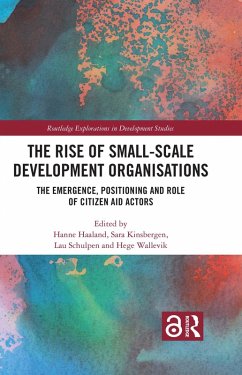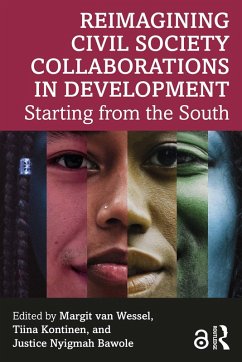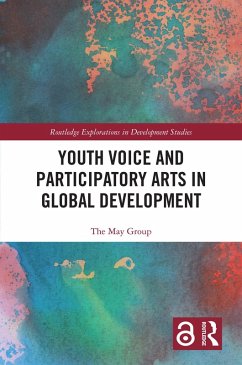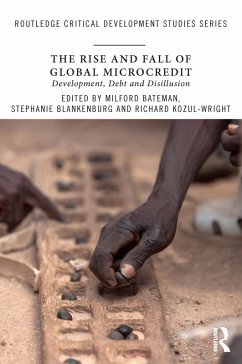
Reimagining Civil Society Collaborations in Development (eBook, PDF)
Starting from the South
Redaktion: Wessel, Margit van; Bawole, Justice Nyigmah; Kontinen, Tiina
Versandkostenfrei!
Sofort per Download lieferbar
0,00 €
inkl. MwSt.
Weitere Ausgaben:

PAYBACK Punkte
0 °P sammeln!
At a time when uneven power dynamics are high on development actors' agenda, this book will be an important contribution to researchers and practitioners working on innovation in development and civil society.While there is much discussion of localization, decolonization and 'shifting power' in civil society collaborations in development, the debate thus far centers on the aid system. This book directs attention to CSOs as drivers of development in various contexts that we refer to as the Global South. This book take a transformative stance, reimagining roles, relations and processes. It does ...
At a time when uneven power dynamics are high on development actors' agenda, this book will be an important contribution to researchers and practitioners working on innovation in development and civil society.
While there is much discussion of localization, decolonization and 'shifting power' in civil society collaborations in development, the debate thus far centers on the aid system. This book directs attention to CSOs as drivers of development in various contexts that we refer to as the Global South. This book take a transformative stance, reimagining roles, relations and processes. It does so from five complementary angles: (1) Southern CSOs reclaiming the lead, 2) displacement of the North-South dyad, (3) Southern-centred questions, (4) new roles for Northern actors, and (5) new starting points for collaboration. The book relativizes international collaboration, asking INGOs, Northern CSOs, and their donors to follow Southern CSOs' leads, recognizing their contextually geared perspectives, agendas, resources, capacities, and ways of working. Based in 19 empirically grounded chapters, the book also offers an agenda for further research, design, and experimentation.
Emphasizing the need to 'Start from the South' this book thus re-imagines and re-centers Civil Society collaborations in development, offering Southern-centred ways of understanding and developing relations, roles, and processes, in theory and practice.
The Open Access version of this book, available at http://www.taylorfrancis.com, has been made available under a Creative Commons Attribution-Non Commercial-No Derivatives (CC-BY-NC-ND) 4.0 license. Funded by Wageningen University.
While there is much discussion of localization, decolonization and 'shifting power' in civil society collaborations in development, the debate thus far centers on the aid system. This book directs attention to CSOs as drivers of development in various contexts that we refer to as the Global South. This book take a transformative stance, reimagining roles, relations and processes. It does so from five complementary angles: (1) Southern CSOs reclaiming the lead, 2) displacement of the North-South dyad, (3) Southern-centred questions, (4) new roles for Northern actors, and (5) new starting points for collaboration. The book relativizes international collaboration, asking INGOs, Northern CSOs, and their donors to follow Southern CSOs' leads, recognizing their contextually geared perspectives, agendas, resources, capacities, and ways of working. Based in 19 empirically grounded chapters, the book also offers an agenda for further research, design, and experimentation.
Emphasizing the need to 'Start from the South' this book thus re-imagines and re-centers Civil Society collaborations in development, offering Southern-centred ways of understanding and developing relations, roles, and processes, in theory and practice.
The Open Access version of this book, available at http://www.taylorfrancis.com, has been made available under a Creative Commons Attribution-Non Commercial-No Derivatives (CC-BY-NC-ND) 4.0 license. Funded by Wageningen University.
Dieser Download kann aus rechtlichen Gründen nur mit Rechnungsadresse in A, B, BG, CY, CZ, D, DK, EW, E, FIN, F, GR, HR, H, IRL, I, LT, L, LR, M, NL, PL, P, R, S, SLO, SK ausgeliefert werden.













